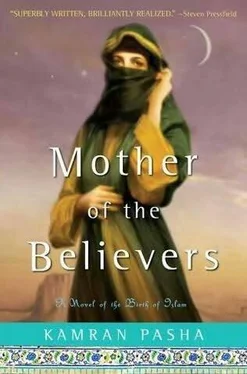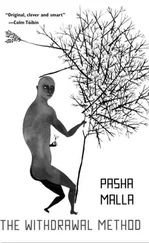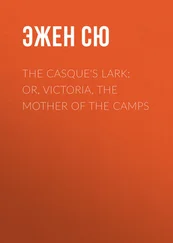I watched in awestruck silence as the Prophet leaned close to the new baby. His elder grandson, Hasan, was still held tightly in his arms, and the smiling boy laughed with delight at the sight of his baby brother. The Messenger held Hasan close to the baby, and the child kissed the newborn on the forehead. And then my husband handed Hasan to his father and took the bundled baby in his arms.
I saw the infant’s face for the first time, and I was startled to see that his eyes were already open and were looking at the Messenger with surprising intensity. The Prophet gazed into the baby’s eyes, which, I saw, were as black as his own. And then he whispered the prayer call into the child’s right ear before handing the baby to Ali, who repeated the prayer in newborn’s left ear.
It was a miracle that Fatima and the baby had survived. And it was a blessing that the Prophet had been given another grandson through whom his lineage would continue. But there was no rejoicing. I looked around the room, confused to see the solemn looks on the men’s faces and tears of evident sorrow on Fatima’s bloodless cheeks.
I felt as if I had walked in on a funeral rather than a birth, and I finally turned to Ali, unable to hold back my unease.
“Why are you not smiling? You have a son!”
Ali looked at me with those mysterious green eyes. As always, I felt he was seeing past me to another place, another time.
“My heart smiles, but my lips cannot. He has a burden I wish for no man.”
And then Ali looked down at his son and I was shocked to see a tear roll down his cheek. In all the years that I had known him, I had never seen this strange young man weep, except in prayer.
Shaken, I turned to face Fatima, who was gazing at me as if seeing me for the first time.
“What will you name him?” I asked with a forced smile, hoping to bring some semblance of normality to this otherworldly scene.
Fatima opened her mouth, but it was a long moment before any sound came out. When she finally spoke, her voice was like a whisper carried on the wind.
“He has already been named.”
Fatima turned her head to her father. My husband stood at Ali’s side, stroking his new grandson’s thick black hair with his forefinger. His eyes glistened, but I saw no sign of tears. It was as if a light had been lit in his soul, one that I had seen only during his painful moments of Revelation.
“Husayn,” the Messenger of God said. “His name is Husayn.”
I looked at the three of them, Muhammad, Fatima, and Ali, and at the two boys, Hasan and Husayn, and suddenly felt as if I were intruding. I was the Messenger’s favorite wife, the beloved of the harem, and yet in that moment I was a stranger. My heart ached with the realization that whatever bond linked these five, it was one that I would never truly be able to understand or participate in. Theirs was a world that I could gaze into only from afar, a shore I could never truly step onto because the ocean that divided us was greater than the expanse of the heavens and the earth.
I turned and saw that Sawda and the midwife had already departed, wisely leaving this intimate moment for those in whose veins the blood of the Messenger flowed. I realized sadly that though I shared Muhammad’s bed, I could never share in his blood. I did not belong here, either.
Without another word, I walked out of the room and left the unsettling dreamworld of the Ahl al-Bayt for the refreshingly familiar streets of the oasis.
Muawiya watched with a cold eye as his father hosted a gathering of the allied tribes. The Hall of Assembly had been decked out in flowing curtains of various hues-indigo, emerald, turquoise, and lavender-each representing one of the major clans present at the summit. It was a motley group that included the uncouth Ghatafan Bedouin tribes that grazed their flocks to the north of the enemy in Medina, and their ancient enemies, the proud Bani Sulaym, who had cultivated the lava fields to the east. Muawiya noted with interest that the only thing that unified these disparate and competing tribes was their hatred for Muhammad’s steady accumulation of power. The refugee from Mecca was truly bringing Arabia together in more ways than one.
The hall was buzzing with loud gossip about the troubling turn of events. Muhammad’s diplomatic efforts, once constrained to the northern tribes of the peninsula, had recently expanded southward. He had forged an unexpected alliance with the Yamama, a tribe that controlled the grain routes from the south. The tribal leaders had adopted the renegade faith and had joined in Muhammad’s boycott of Mecca, denying the pagan tribes wheat and barley. Without any warning, one of Arabia’s key suppliers of food had joined the enemy, and the threat of starvation for Mecca and its allies was very real. It was this shocking development that had forced Abu Sufyan to call together the heads of the southern tribes in the hope of uniting them in a final stand against the danger of Medina.
Abu Sufyan clapped loudly to gain their attention, and a blanket of silence fell upon the crowd of tribal chiefs. Muawiya read the men’s faces and saw anger and fear in their eyes. These were desperate people, ready to take desperate action, a fact that his father relied upon to bring together men whose fathers had been at one another’s throats, whose tribes had warred with each other for centuries.
“The situation to the north has become intolerable,” Abu Sufyan said without any preamble. “Muhammad’s alliance with the Bedouins has choked off all our trade with Syria and Persia. And now Yamama has fallen under his spell and the enemy has brought famine to our doors.”
Hind stepped forward, decked in a flowing robe made of red silk that rustled seductively. Muawiya saw some of the men whisper, undoubtedly speaking of her madness at Uhud, which had become the infamy of Mecca. But there was no sign of that crazed demon, hungry for human flesh, and she walked with her usual grace. And when she spoke, her voice was steady and calm, although Muawiya could see an unnerving glint in his mother’s eyes.
“The future of all Arabia is at stake,” she said. “We will live as free men and women. Or as slaves to Muhammad and the voices in his head.”
Her words were met with a loud murmur of assent from the nobles. And then another voice rose above the din. Muawiya glanced over to see that it was his friend, the ever-diplomatic Amr ibn al-As.
“But we have tried military action before, with little success,” he said with his practiced silky ease. “Is it not time to reach an accommodation?”
Muawiya smiled in relief. Amr had the respect of many of the tribal leaders. If he had been persuaded to see the reality of their situation, perhaps the fire of this folly could be extinguished before it blazed out of control.
All eyes were on Abu Sufyan to respond. The old man hesitated and then cast a bitter glance at Hind.
“If ever there was a chance for an accord, it is long past,” he said with a tone of real regret. “The barbarism shown to the dead of Uhud by our women has inflamed their passions.”
Hind turned to face him, one eyebrow raised defiantly.
“Do not place the blame on women for your failure to be men,” she said with a dangerous smile.
Muawiya saw his father wince slightly and he shook his head. After all these years, Abu Sufyan remained in thrall to this madwoman. The most powerful man in Mecca had long been enslaved by the chain that she had tied around his heart. Muawiya vowed never to let that happen to him.
“In any event, Arabia is at a crossroads,” Abu Sufyan said with a heavy sigh. “We have received word that Muhammad is sending envoys to other southern tribes, asking them to join the Yamama against us. If he forges more alliances to the south, our trade routes with Yemen will be compromised. Without food, without trade, Mecca will die.”
Читать дальше












